10 Reasons for Low Milk Supply and How to Overcome Them
Sep 04, 2024As a new mom, you've probably heard breast milk is your baby's best nutrition. But what happens when your body doesn't seem to be producing enough? Low milk supply can be frustrating and even alarming for breastfeeding mothers. In this post, we'll explore the most common reasons for low milk supply and provide practical tips to help boost your milk production.
Understanding Low Milk Supply
Before we dive into the reasons, it's important to understand what a low milk supply means. Many mothers worry they're not producing enough milk when in reality, their supply is sufficient. True low milk supply occurs when a mother is unable to produce enough breast milk to meet her baby's nutritional needs.
Signs of low milk supply include:
- Poor weight gain in your baby or weight loss
- Infrequent wet or dirty diapers
- Baby seems unsatisfied and fussy after feedings
If you're experiencing these signs, it's crucial to consult with a lactation consultant or healthcare provider. With low milk supply, it's important to identify WHY milk supply is dipping in the first place (identifying the root cause), so that you are treating it with the correct strategy.
Now, let's explore the top 10 reasons for low milk supply and what you can do about them.
- Infrequent Feeding or Pumping
One of the most common reasons for low milk supply is not breastfeeding or pumping often enough. Your body produces milk on a supply-and-demand basis. The more you feed or pump, the more milk your body will produce.
Solution: Aim to breastfeed or pump at least 8-12 times per day in the early weeks. This frequent stimulation will help establish and maintain your milk supply.
- Poor Latch
A poor latch can lead to ineffective milk removal (and typically pain), which in turn can result in a low milk supply. If your baby isn't latched on correctly, it may not be able to extract milk efficiently, signaling your body to produce less.
Solution: Work with a lactation consultant to ensure your baby has a proper latch. They can provide techniques to improve latch and make breastfeeding more effective and comfortable.
3. Poor Nutrition & Hydration
Your body needs adequate hydration and nutrition to continue producing breast milk. Dehydration and a poor diet can contribute to a low milk supply.
Solution: Aim for a balanced diet rich in fruits, vegetables, whole grains, and lean proteins. Consider a postnatal vitamin supplement to ensure you're getting all the necessary nutrients. Drink enough water for your body weight & activity level.
- Certain Medications
Some medications can affect milk supply. These include certain birth control pills, decongestants, and some antihistamines.
Solution: Always consult with your doctor about any medications you're taking while breastfeeding. They may be able to suggest alternatives that won't impact your milk supply.
- Stress and Fatigue
Being a new mom is stressful, and lack of sleep is almost a given. Unfortunately, high levels of stress and fatigue can negatively impact your milk supply.
Solution: Prioritize self-care and rest. Ask for help from family and friends, and try stress-reduction techniques like deep breathing, meditation, or gentle yoga.
- Supplementing with Formula
While sometimes necessary, supplementing with formula can lead to a decrease in milk supply if not managed carefully. When you replace a breastfeeding session with formula, your body receives less stimulation to produce milk.
Solution: If you need to supplement, try to pump during those times to maintain your milk supply. Work with a lactation consultant to develop a feeding plan that supports your breastfeeding goals.
- Insufficient Glandular Tissue
Some women have insufficient glandular tissue in their breasts, which can limit milk production. This condition, also known as hypoplasia, can be a significant factor in low milk supply.
Solution: While you can't increase glandular tissue, working closely with a lactation consultant can help you maximize the milk production you do have. In some cases, supplementation may be necessary.
- Previous Breast Surgery
Certain breast surgeries, particularly those involving incisions around the nipple area, can impact milk production. This includes breast reduction, augmentation, or biopsies.
Solution: If you've had breast surgery, inform your healthcare provider and lactation consultant. They can help you develop strategies to optimize your milk production based on your specific situation.
9. Hormone Imbalances
Hormonal imbalances, such as those caused by thyroid problems or polycystic ovary syndrome (PCOS), can affect milk production. These conditions can interfere with the hormones responsible for milk production. Stabilizing your hormones through nutrition and habits can help regulate these to support milk production.
Solution: If you suspect hormonal issues might be causing your low milk supply, consult with your healthcare provider. They can run tests and provide appropriate treatment to address any underlying hormonal imbalances.
10. Returning to Work Too Soon
Returning to work early can disrupt breastfeeding routines and lead to a decrease in milk supply, especially if regular pumping isn't possible.
Solution: If possible, delay your return to work to establish a strong milk supply. When you do return, make a pumping schedule and communicate your needs with your employer. Many workplaces are required to provide time and space for pumping.
Boosting Your Milk Supply
If you're experiencing a low milk supply, don't lose hope. First, identify WHY milk supply is dipping in the first place and treat it with the appropriate strategy.
Remember, every breastfeeding journey is unique. What works for one mother may not work for another. It's essential to be patient with yourself and your body as you work to increase your milk supply. Remember, many mothers who initially struggle with low milk supply go on to have successful breastfeeding experiences.
Struggling with a low milk supply? Don't let it derail your breastfeeding journey. Get the entire Breastfeeding Blueprint program for FREE as a bonus when you join us inside of The Postpartum Shift and gain access to expert guidance, meal plans, and strategies to boost your milk production while enjoying your favorite foods and nourishing your body during this crucial postpartum phase.







